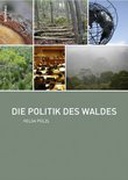Explore

Die Arbeit beschäftigt sich mit der Frage warum kein international rechtlich verbindliches Instrument zur Frage der Waldpolitik verabschiedet wurde. Sie zeigt wie die Definition des Politikproblems eine Form der Kontrolle für den Entscheidungsfindungsprozess und die damit verbundene Problemlösung darstellt. Folglich wird demonstriert wie Orte, Berichte und nicht-menschliche Objekte mit der Entstehung der internationalen Waldpolitik im Rahmen der Vereinten Nationen verbunden sind. Während in der Entstehungsphase der internationalen Waldpolitik das eigentliche Politikproblem als "Entwaldung und Degradierung des Tropenwaldes" verstanden wird, rückt in der zweiten Phase der Politikformulierung die "Entwaldung und Degradierung aller Wälder" in den Blickpunkt des internationalen Interesses. Weiters legt die Arbeit die bedeutungsbildenden Elemente der Policy-Narrative, die mit der internationalen Waldpolitik verwoben sind, offen. Die Identifikation von globalen Umweltdiskursen, die ein bestimmtes Politik- bzw. Problemlösungsverständnis transportieren, die mittels diskursiver Praktiken und Machttechnologien operieren und die rhetorische Mittel - wie z.B. die apokalyptische Vorstellung der Übernutzung - zum Einsatz bringen, erlaubt zu erkennen, welche Regeln und Praktiken sich auf die Art und Weise, wie die Politik der natürlichen Ressourcen entsteht, auswirken. Sie zeigt, wie Policy-Probleme entstehen und wie sie verstanden werden und erlaubt Policy-Wandel, der sich in einer Nicht-Entscheidung vollzieht, zu identifizieren. Der Rolle der Sprache wird folglich besondere Aufmerksamkeit zuteil.
This book is included in DOAB.
Why read this book? Have your say.
You must be logged in to comment.
Rights Information
Are you the author or publisher of this work? If so, you can claim it as yours by registering as an Unglue.it rights holder.Downloads
- 69 - pdf (CC BY-NC-ND) at OAPEN Library.
- 50 - pdf (CC BY-NC-ND) at OAPEN Library.
Keywords
- deforestation and degradation of tropical forests
- Diskursanalyse
- global environmental discourses
- international forest policy
- internationale Waldpolitik
- Natürliche Ressource
- Nicht-Entscheidungsfindungsprozess
- policy change in a non-decision-making process
- Politics & government
- Politikwandel
- Society & Social Sciences
- thema EDItEUR::J Society and Social Sciences::JP Politics and government
- Vereinte Nationen
- Völkerrechtsinstrument
- Waldforum der Vereinten Nationen
Links
DOI: 10.26530/oapen_574651Editions

